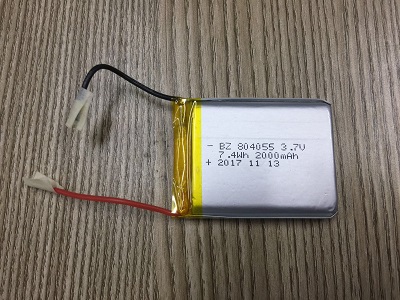A lithium-ion battery or Li-ion battery (abbreviated as LIB) is a type of rechargeable battery in which lithium ions move from the negative electrode to the positive electrode during discharge and back when charging. Li-ion batteries use an intercalated lithium compound as one electrode material, compared to the metallic lithium used in a non-rechargeable lithium battery. The electrolyte, which allows for ionic movement, and the two electrodes are the constituent components of a lithium-ion battery cell.

FAQ of Lithium Battery
1, the secondary battery performance mainly includes what aspects
Mainly include voltage, internal resistance, capacity, internal pressure, self-discharge rate, cycle life, sealing performance, safety performance, storage performance, appearance and so on, other overcharge, over discharge, weldability, corrosion resistance and so on.
2, the comparison of rechargeable batteries and alkaline batteries:
In most cases, nickel-metal hydride batteries can completely replace disposable batteries, especially when used in high-power equipment.
Although alkaline batteries have a rated voltage of 1.5 volts, the voltage drops continuously after the discharge starts. Looking at the entire discharge process, the average alkaline battery voltage is about 1.2 volts, and very close to the nickel-metal hydride batteries, the main difference is that the alkaline battery voltage at the start of 1.5 volts, and eventually dropped to less than 1.0 volts, and nickel-metal hydride batteries It will maintain a voltage of about 1.2 volts most of the time.
3, the reliability of the battery test What are the items
1. Cycle life
2 Different rate discharge characteristics
3 Different temperature discharge characteristics
4. Charging characteristics
5. Self-discharge characteristics
6. Different temperature self-discharge characteristics
7. Storage characteristics
8. Over discharge characteristics
9. Different temperature resistance characteristics
10. High temperature test
11. Temperature cycling test
12. Drop test
13. Vibration test
14. Capacity distribution test
15. Internal resistance distribution test
16. Static discharge test
4, the battery safety test What are the items
1. Internal short circuit test
2. Continuous charging test
3. Overcharge
4. High current charging
5. Forced discharge
6. Drop test
7. Drop test from height
8. Puncture experiment
9. Plane crushing experiment
10.Cutting experiment
11. Low-pressure shelving test
12. hot abuse experiment
13. Water immersion test
14. Burning experiment
15. High-pressure experiment
16. Baking experiment
17. Electronic furnace experiment




